
What’s going on out on the land?

Glands on a White-tailed Deer Leg
I found a White-tailed Deer leg while trailing a Coyote. I ended up taking the leg. Why? Well, I thought it would be a good chance to take the leg home to study it and learn more about deer. This post is about my findings, especially in regards to the glands distributed along a deer’s leg.

Two More Coracoids
I have written about coracoids before, but since realizing they are very helpful in the identification process of birds, it has become a bit of an ongoing puzzle now.
This post is about finding two dead birds and using their coracoids to sort out who they were with a little more certainty.

Tracking at Saugeen Shores, 2024.09.28
Another beautiful, exciting and overwhelming trip with the tracking apprenticeship to Saugeen Shores. Bird tracks, invert sign, reptiles, and more met us on the sandy shores of Lake Huron.
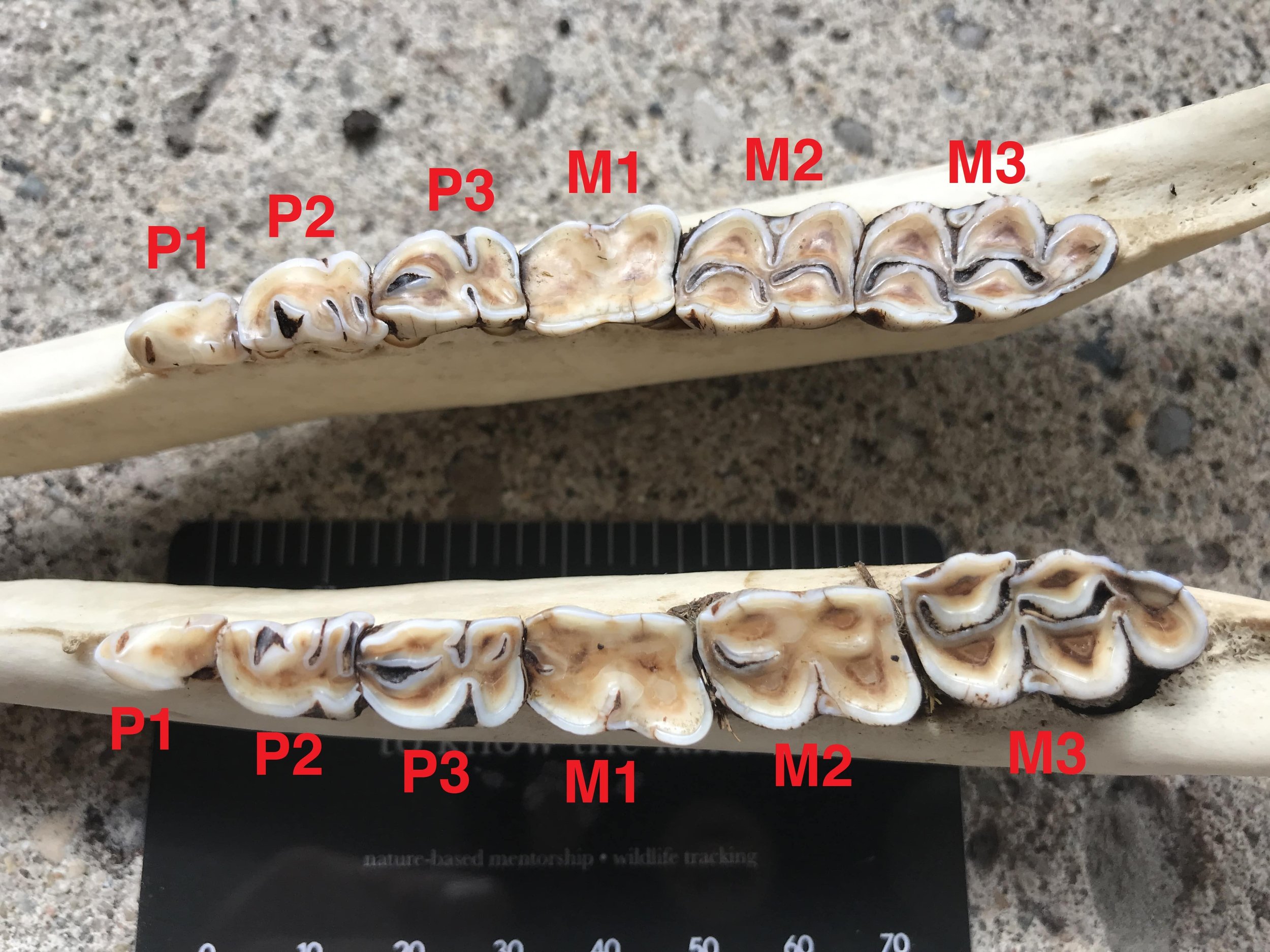
How To Age A White-tailed Deer by Looking At The Teeth pt. 2 : Older Deer
At the end of April I was attending a Track and Sign Evaluation. On the second day of the two day eval we came across a female White-tailed Deer carcass and were asked the question of how old the dead Deer was when she died. We were given three options to choose from based on what we could see. The three options were: A) 1-3 years, B) 4-7 years, or C) 7 and up.
Well, when I got home I started I realized I had a lot more research to do.
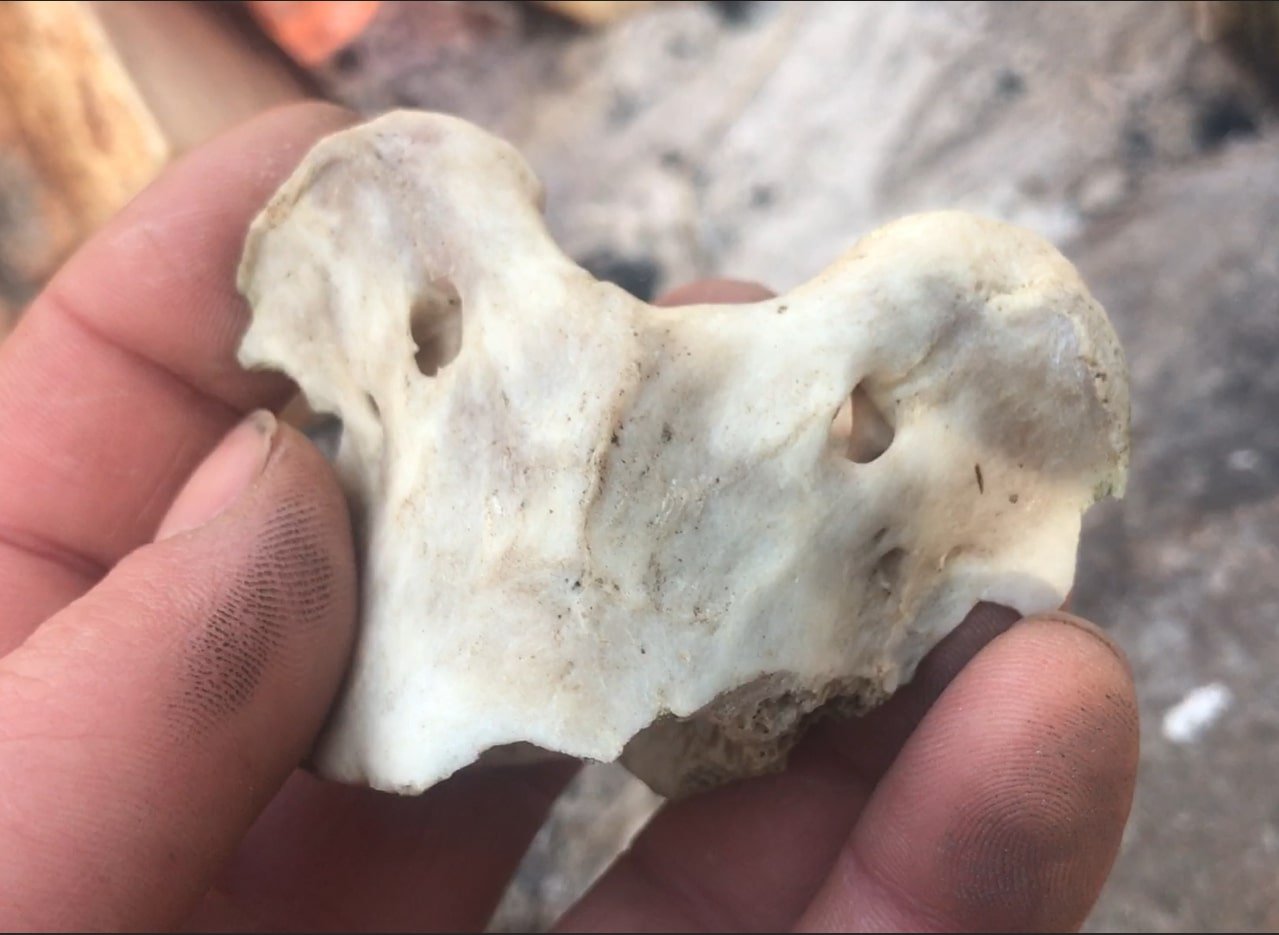
Atlas Bone of White-tailed Deer
On one of my tracking study calls a photo was presented and everyone was asked to identify the bone that was shown. Somehow a few people were able to identify it rather quickly. I had never heard of the bone before but took note. I love learning about the skeletal structures of animals and spend a lot of time on it, but how did I miss a bone that so is so important to an animal, and that so many others knew? I needed to learn more about this bone.
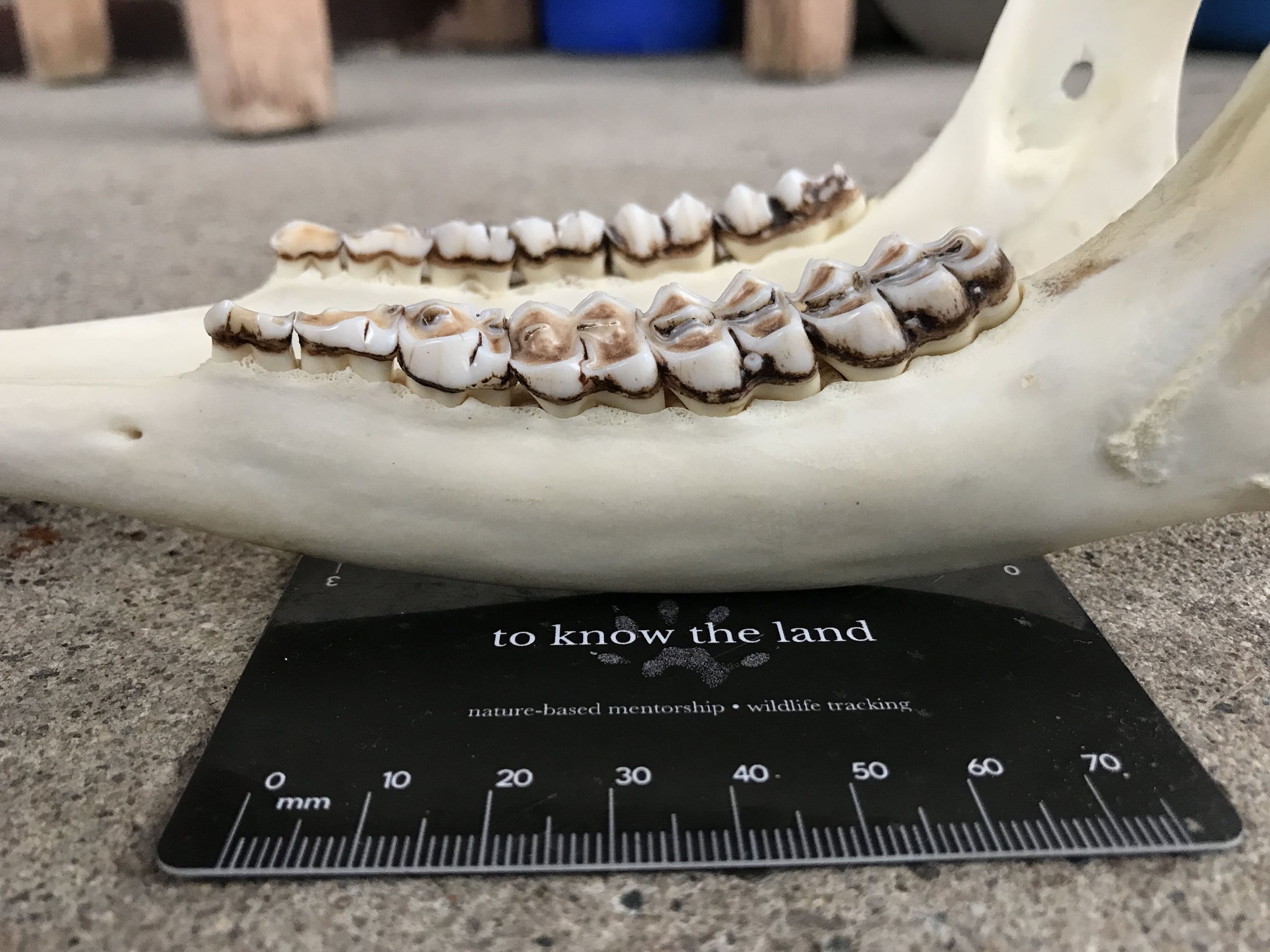
How To Age A White-tailed Deer by Looking At The Teeth, pt. 1 : Younger Deer
A lot has been studied and written about on the topic of White-tailed Deer. But despite reading a ton of it, I still find it trying to find all the various pieces of information and put it all together, unless I write it up myself. Here is my attempt to consolidate and better understand how we can come to know a deer’s age at the time of their death by looking at the teeth which remain.

Identifying an unknown Shrew
A parent of one of the kids at the school where I work wrote to me recently, sharing some photos of a dead Shrew she had found at one of my favorite places near to where I live. She guessed it could be a Pygmy Shrew and asked what I thought. I decided to try and figure it out.

Necrophila americana
Necrophila americana. This phrase isn’t a comment on the extinction culture of the North American colonial project, but instead it is the scientific name of a species within my favorite crew of insects : Carrion Beetles! The simple and concise common name of the particular species highlighted in this post is the American Carrion Beetle. Pretty easy to remember and pronounce. I love these little dudes.

Determining The Difference Between Red Fox and Eastern Coyote Skulls
Today I went out to track White-tailed Deer and anyone else I might encounter. I went to the swampy Eastern White Cedar woodlands where I found a beautiful pair of antlers a couple of years ago in hopes that while out tracking the Deer I might come across another antler. Instead, when I walked into the low thickety edge of the darker Cedar woods, I found some bones and eventually a skull.
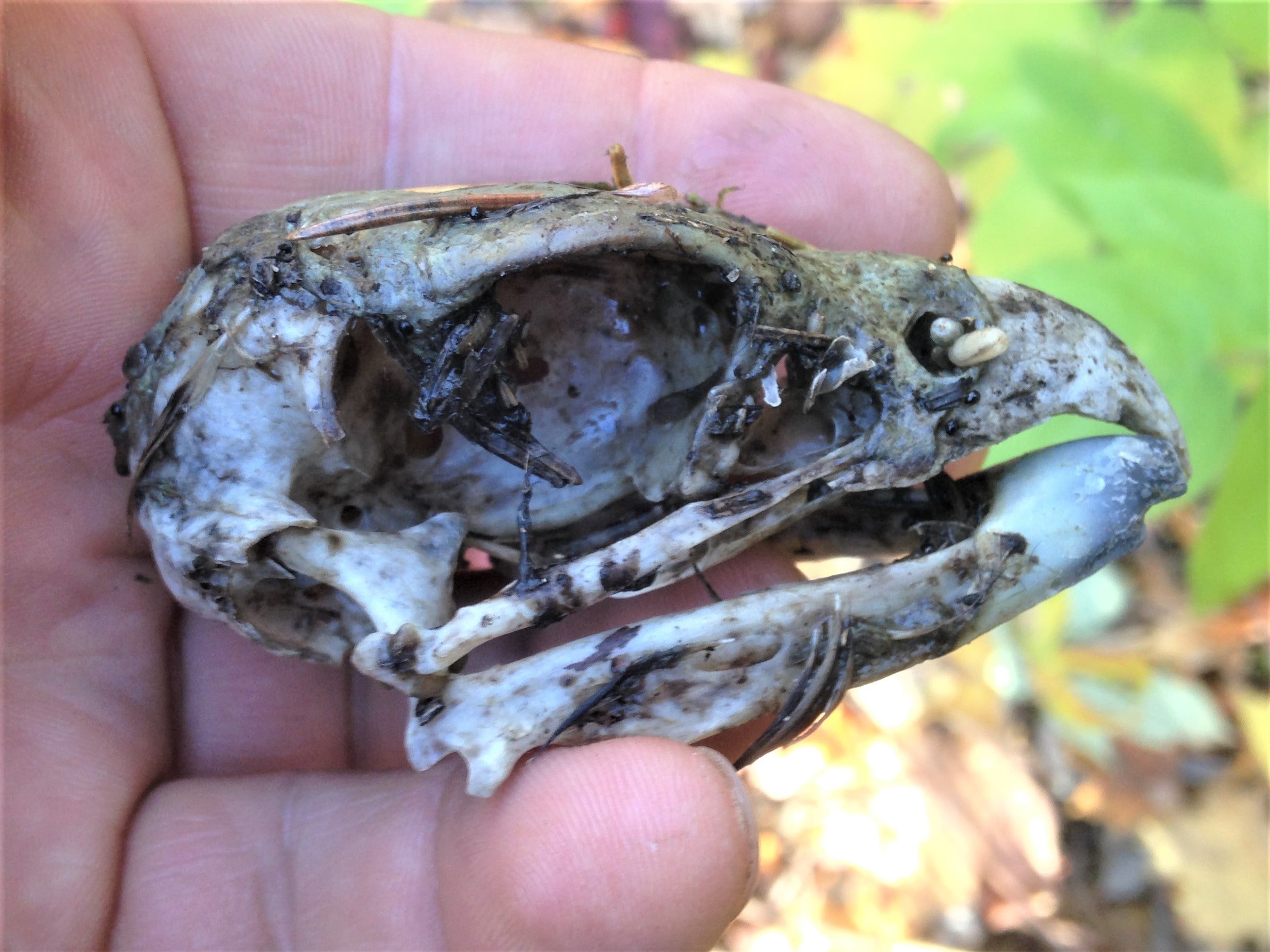
Along came a skull…
On Saturday October 29th, two days before the episode on my inappropriate appropriation of a Great Horned Owl skull aired, I drove to Mono Tract, North of Orangeville here in Ontario to pick up my partner from a day of learning about and harvesting roots from various species. I wasn’t there while they were doing this. Instead I was off at the Boyne Valley, still a little further North, trailing White-tailed Deer and looking for fungi, but when I arrived at the forest I was met with excitement about a skull.
As I came in, my friend handed me a small brown bag with a excited story about how they found a skull. I asked a couple of clarifying questions to seek out some basic answers, but things didn’t seem certain. I heard that there were talons, feathers, and some bones remaining, that the remains seemed maybe a couple weeks old, but aside from some guesses there was i.d. on whose skull it was and how it got there.
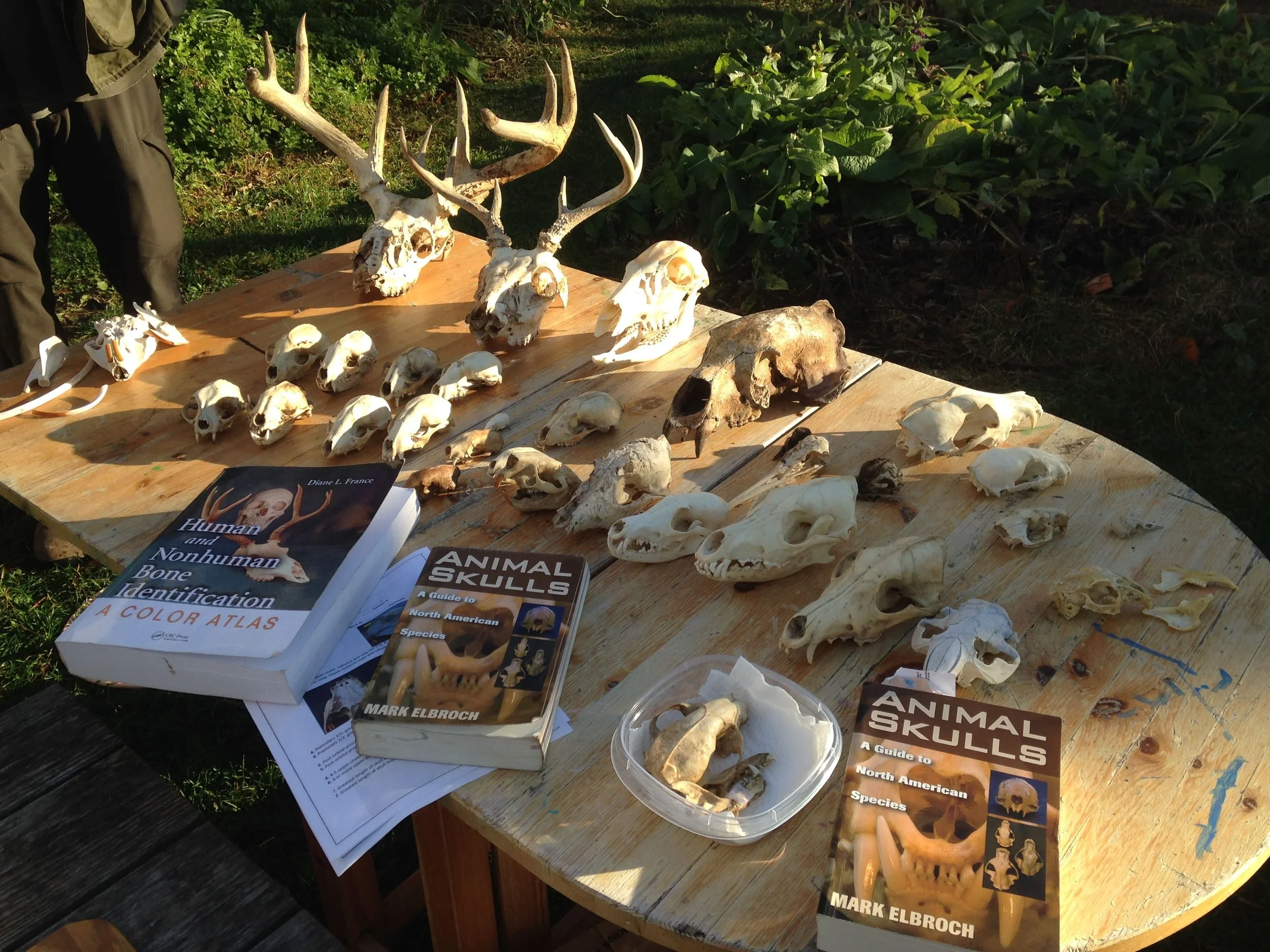
How To Clean A Skull
This past weekend with the EarthTracks Wildlife Tracking Apprenticeship I got to host a mini-workshop all about skulls. It was a chance to share some of my enthusiasm about the wonderful ecologies of a boney structure which hold, protect, support and enables our lives. Why not be in love with skulls?
One thing I wished I could have touched on more clearly and more eloquently for everyone was how to clean a skull, which is a question that comes up every time I bring out skulls in any of my programs. So in light of that questions, I decided to explain some of how I clean the skulls I find.
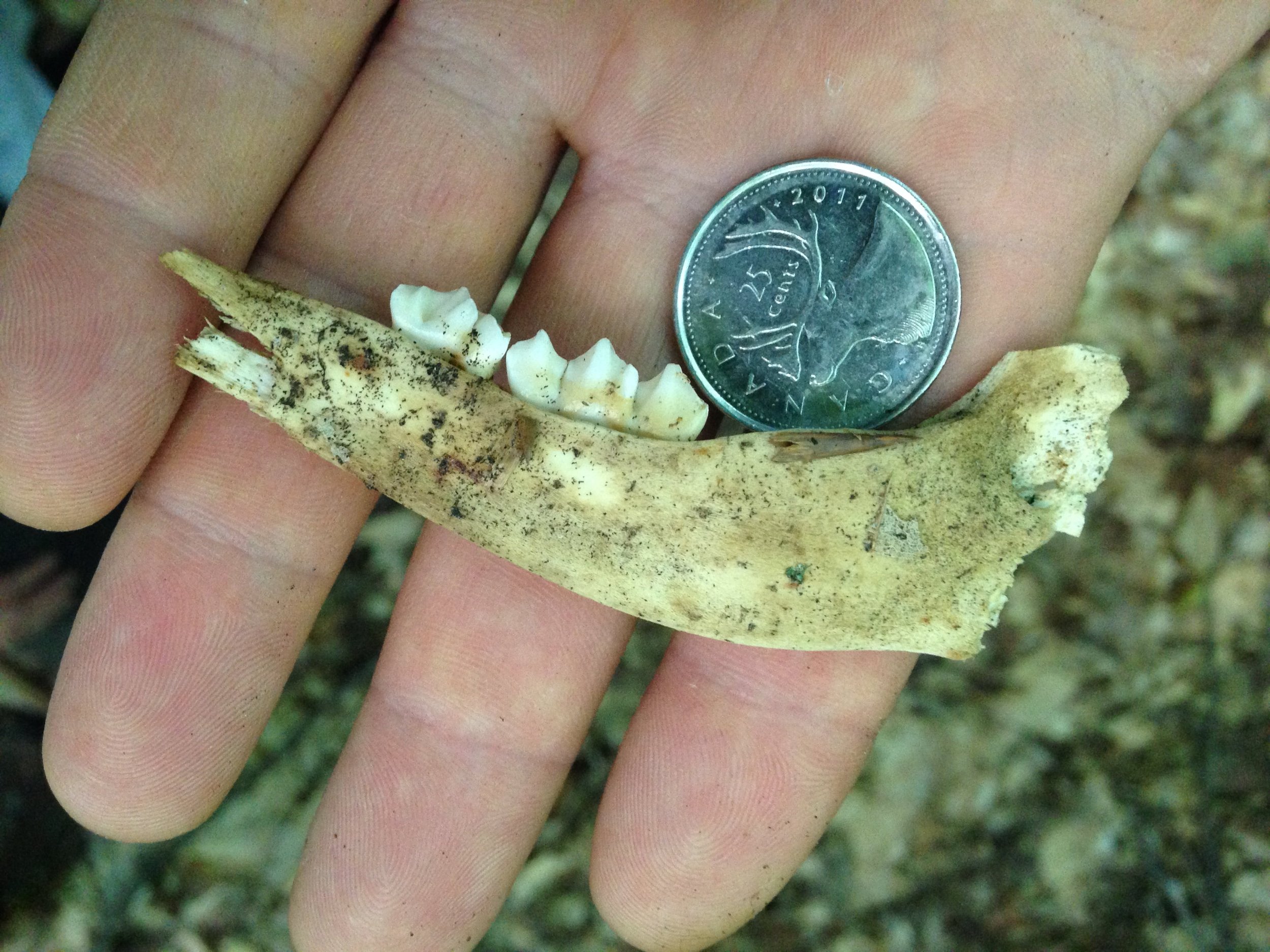
A mystery while tracking in Lake of Bays, 2022.08.13
The skill set of identifying a fresh trail with certainty in the jumbled quilt of the Summer forest floor is definitely an art and science with which I have little purchase… but a skill set that I do feel a growing confidence about is bone identification, and while making our way up the hill in the leaf little there was a small mandible laying fairly exposed with the lingual surface (the side which would be closest to the tongue in the living animal) facing the canopy.
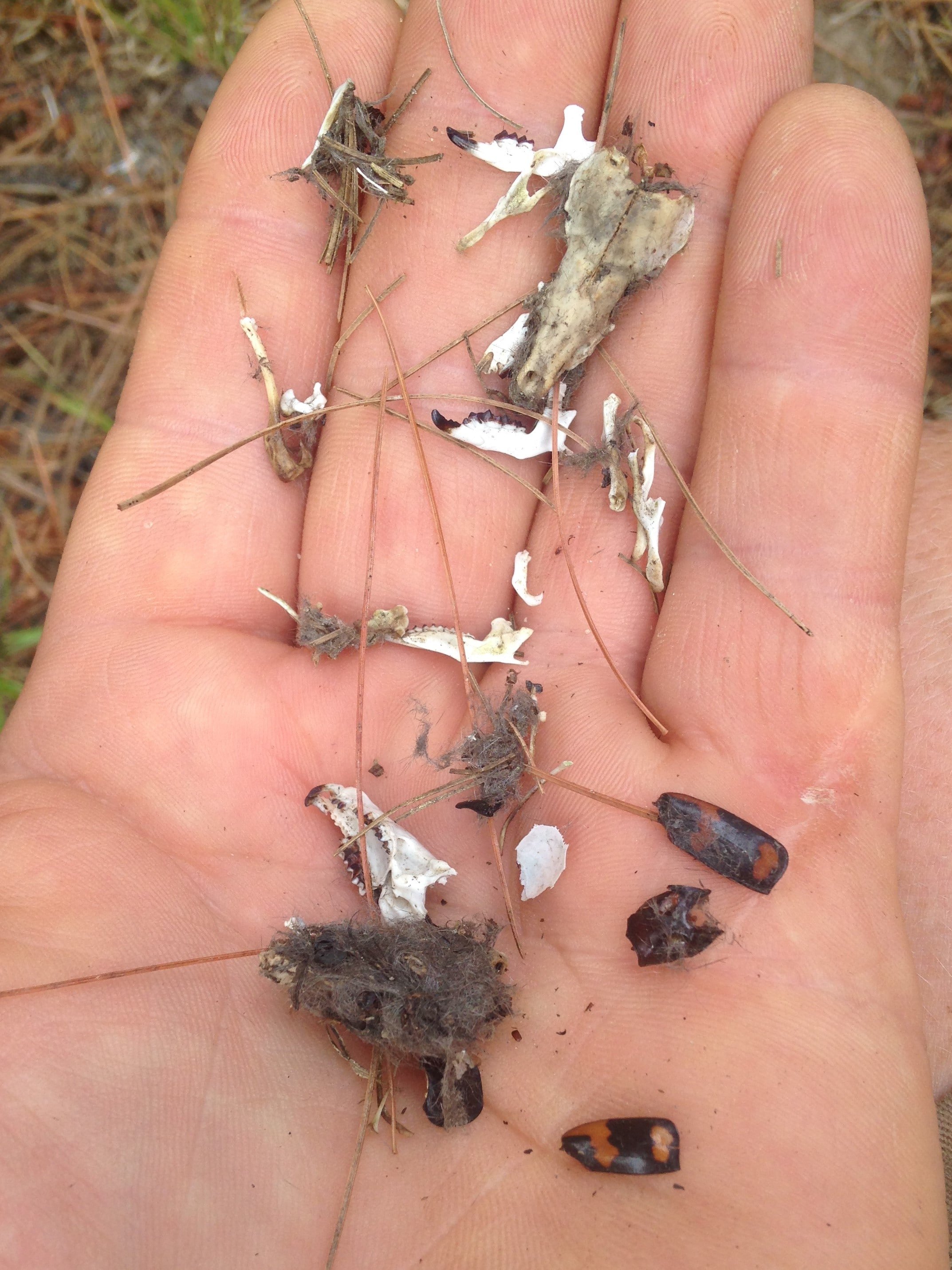
Carrion Beetles pt. 2 : Elytra in the Pellet
While out with the Wildlife Tracking Apprenticeship crew I came across some Owl pellets with some interesting finds. One of which caught my eye and pushed me to learn more about the Nicrophorinae subfamily of Carrion Beetles.

Carrion Beetles pt. 1 : Nicrophorus tomentosus
After taking a bunch of photos of the dead Robin I flipped the carcass over to see if I could see any visible signs of trauma. I noticed a wound on the back of the neck, but I got totally distracted when a small orangey-yellow thing crawled deep into the grass…

What happened to this Gull?
I was walking up the frozen river with some kids in tow. We’d been out for a few hours tracking when we were on the last stretch and one of the kids pointed to a small mound on the ice. “Look a Penguin!” I think she’d meant it as a joke, but I took note and walked towards the mound. I had walked along this frozen river the day before and hadn’t noticed a mound on the middle of the river bulging out of the ice. I couldn’t tell what it was at first, but my guess was that a log or branch had broken through somehow. As I got close, I learned it was nothing of the sort.

Tracking journal 2021.10.09 pt. 1
Very shortly after we started out from the parking lot, I noticed the pale long form of what I first thought was a drowned Earthworm in a puddle on the gravel. I walked up and immediately recognized the scales as the underside (ventral) of a snake, but which snake? As I bent down to pick the snake out of the water I noticed they were very small. This narrowed it down a little in my mind and then confirmed as soon as I flipped the snake over.
Thus begins a fairly long and detailed account of the first half of our tracking meet up on October 9, 2021.
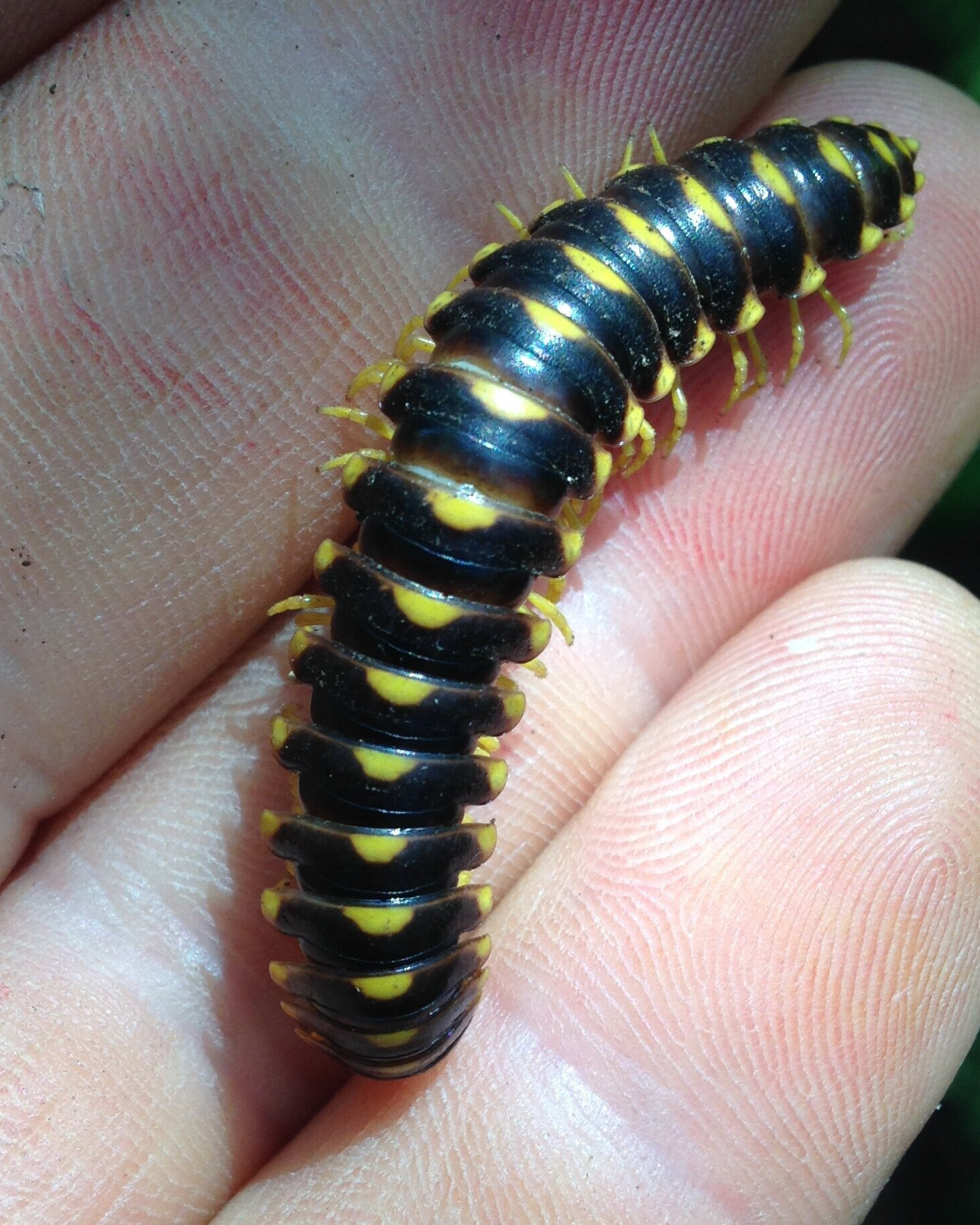
Parasitic Zombie Fungus Infecting Cyanide Secreting Milipedes
I went out with the tracking club on the weekend and while out we kept coming across these yellow and dark brown/black millipedes hanging out on the top of narrow stumps about a meter (~3 feet) off the ground.

Predated Mallard nest
Returned to a Mallard nest only to find that someone had come along and eaten the eggs. Thus began the search for clues to sort out who was the predator? An old fashioned whodunnit, tracker style.
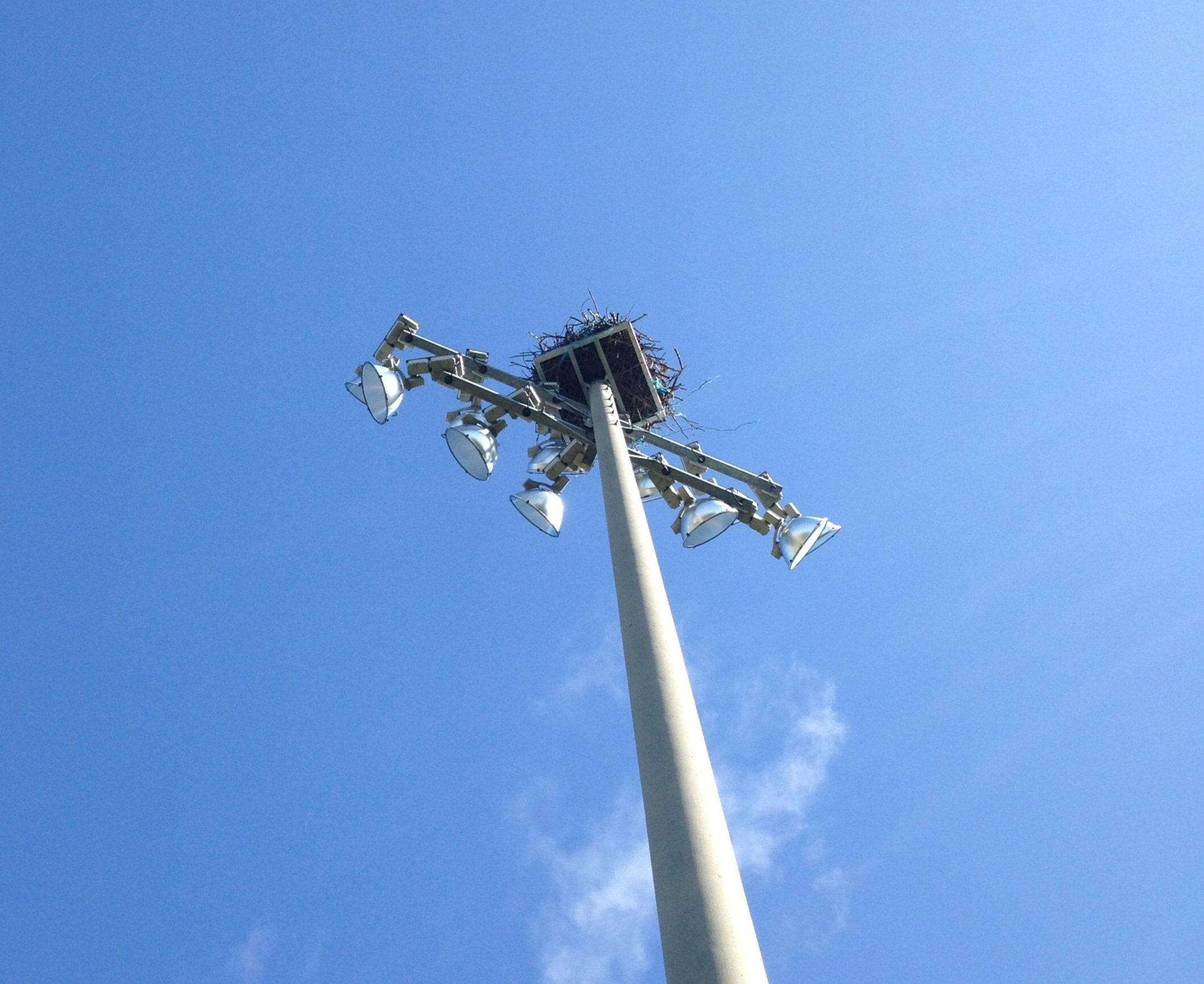
Osprey and headless fish at Bishop Mac
I went out to Bishop Mac with my pal Tamara to practice trailing Deer and Coyotes but when we got there we watched an adult Osprey fly in with a Goldfish and land atop a nest. We watched as the adult leaned over the brim and two small Osprey heads emerged. Almost as soon as the Osprey had arrived they took off again with the Goldfish still in their talons. We both thought this was strange…

Rock Dove Kill site?
I was on my morning walk along the riverside when up the path I came across a large pile of feathers.
I love how a simple walk in the morning, just to get out of the house can turn into a chance to really look at the details of a killsite and study the gaits of the possible predators, and look at the structure of a feather. What amazing teachers these wild neighbours are.
